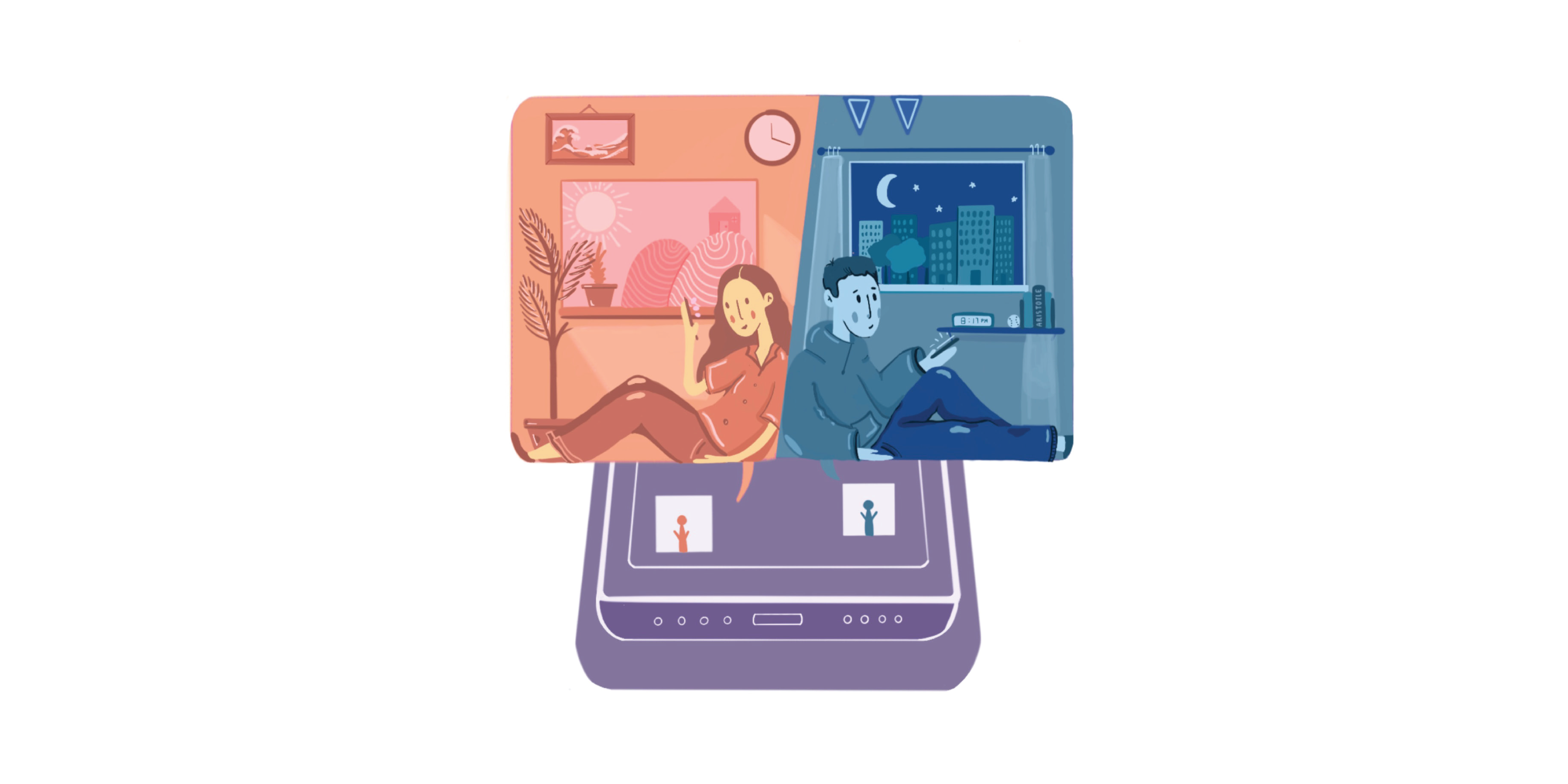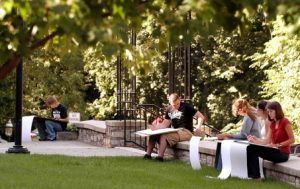Keeping your high school relationship when you go to college is like shuffling a deck of cards. I’ve heard that because there are 52 unique elements to a deck, each time you shuffle you’re creating an order the universe has never seen before. But the deck remains the same, with the same makeup, used for the same game. Just like the deck of cards, your relationship gets mixed up in a way that is impossible to predict, but its core substance remains the same. As I reflect on Valentine’s Day, I’d like to share some lessons I’ve learned through having a long distance relationship for the past six months with the help of Aristotle.
I met my girlfriend Mia the summer before senior year of high school. We went through the college selection process together, editing each other’s Common Application essays, celebrating acceptance letters, and brushing off rejections. It was always in the back of our minds that we would end up in separate places. Once we decided to attend schools 400 miles away, though, the elephant in the room was born. Throughout the summer, that elephant only grew. What were we going to do come August?
We decided to give long distance a shot.
When we said goodbye for the last time that summer, I found solace in a surprising place: Aristotle’s philosophy. In Categories and Metaphysics, Aristotle describes his theory of substances and accidents to explain the world around us. According to him, the universe is made up of things that go beyond, that supersede reality, originating from true nature: substance. He calls the concrete apparitions, characteristics, or qualities of these substances “accidents.” The substance of an object has existed since the beginning of the universe, but its accidents might change throughout time. Take a chair. Maybe the chair is red, or perhaps it is blue. The chair (the substance) is an entity and the color is a feature of the chair (the accident). If you change the color of the chair, it does not stop being a chair.
While his theory no longer holds in modern science, I think it can be used to express truths in the intangible aspects of human experience. Being 400 miles away, it is not the partnership with daily shared experiences that it was during the summer. However, we still share music through Spotify playlists, just like we’re still in the car together. The accidents of our relationship changed, but the substance did not.
College is a transformative experience: freedom, personal responsibility, the ability to explore yourself as a person, the last real period of insulation before self-reliant adulthood. She goes to a massive public school in Columbus, Ohio, while I’m at a small, elitist private school in D.C. Though our college experiences in many ways are different, this doesn’t mean we can’t find similarities. Abstract emotions like excitement, nervousness, or loneliness speak to the substance of a relationship, not the accidents. Sharing these feelings through text, FaceTime, or the occasional letter has allowed us to connect, breaching the gap between our location and experiences.
This idea of change over time was one of the first things I learned through my long-distance relationship: Appreciate similarities in different experiences. For example, neither of us is following the path we originally anticipated in college. I came to Georgetown wanting to major in Science, Technology, and International Affairs, and now I’m interested in political writing. Similarly, she was planning on being a mechanical engineer, but now has found a passion for city planning. We’ve talked a lot about this uncertainty and change. Although our personal accidents may have changed, our substance remains, and it remains connected.
Another way we have dealt with this change is rephrasing how we ask questions, another lesson I’ve learned: communicate intentionally. We say “How are you feeling?” instead of “What are you up to?” We thought it was important to choose a phrase that both conveys care for the other’s well-being while simultaneously respecting their independence. If you’re constantly asking, “What are you up to?” it can seem like you are trying to monitor the other’s actions, or that you’re entitled to a regular report on the other’s status. By asking “How are you feeling?” you are still able to share feelings and experiences without any subconscious irritation.
While we had discussed long distance quite a bit before move-in day and had come up with some strategies to make this shift in accidents a little easier, it still wasn’t a pleasant transition. Saying goodbye to the person you had spent every day of your summer with, knowing that the next time you’d be together is Thanksgiving, is impossible to prepare for.
Changing the accidents of most things is usually not an easy process. It’s probably why people think long distance relationships are doomed from the start. Change is frightening and it’s easy to be overwhelmed by accidents shifting around us. People frequently confuse the substance and accidents of relationships in life. It’s an easy trap to fall into in all relationships, to construe accidents as substance, to lump them together and try to mold something genuine out of it. Some may find themselves in long-distance relationships because they want to go back to the past, or they want someone to talk to when all their friends are gone. These are accidents, not substance.
To avoid this error, I think it’s better to look at the processes of change and try to identify what’s changing: is it something essential, core, immutable, or is it the appearance of that? In the case of my relationship, I knew my surroundings, my tastes and interests, and the people I spent my time with would all change. But none of that was going to change my love for Mia.
When I ask Mia how she’s feeling or listen to a song on our shared playlist, I am reminded that the substance of a true relationship is an ever-present and transcendent connection, a partnership cemented in shared experiences. It brings you an understanding of another person while deepening your self-awareness. This is the kind of thing that lives independent of distance, the reason my relationship with Mia remains the same despite the miles between us.
This brings me to my final lesson: grow as we go. For me, this is the most important one, and the hardest. To grow as we go is to believe in what Aristotle has to say, to have faith in the substance of our relationship as the accidents morph. It can be a trying task to paint the chair or shuffle the deck of cards, but the work can bring a new, beautiful view of substance.
Image Credit: Deborah Han and Insha Momin






